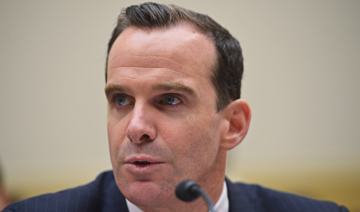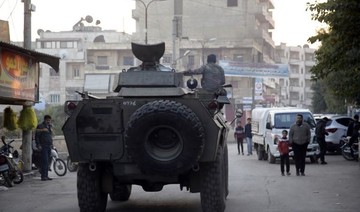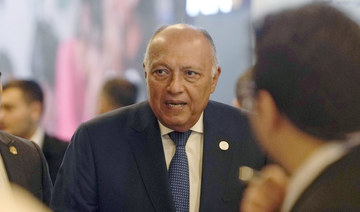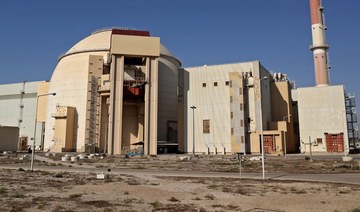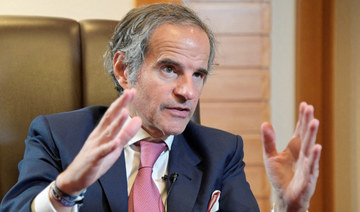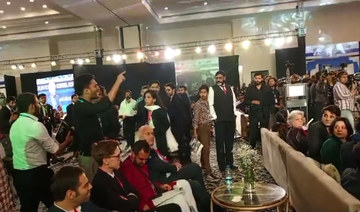SIDON, Lebanon: Rozan Qarqour lives with her husband and six children in a tiny room in an unfinished building, where they share a bathroom with other Syrian refugees. Her husband sells paper cups of cardamom-flavored Arabic coffee on the streets of the Lebanese port city of Sidon to earn a few dollars to buy bread and vegetables.
But despite their dismal life in Lebanon, the family, which fled Syria’s central province of Hama six years ago, has no plans to return home. Nor do the 160 other families who live in the Ouzai compound — or most of the other 1.2 million Syrian refugees who live in Lebanon.
“I will not take my children back to death and hunger,” said Qarqour, 32, as she sat with other women on the floor cutting fresh fava beans that would later be cooked with rice on a small gas burner.
A much touted Russian initiative to facilitate the return of refugees of Syria’s 7-year-old war from around the region appears to have fizzled out, with only a tiny fraction of the nearly 6 million who fled their country since the start of the conflict in March 2011 returning home.
The Russian military says 114,000 Syrians have returned home since the beginning of 2018. The UN refugee agency says it has verified only 37,000 refugees who have voluntarily returned this year.
Syria’s war has displaced half the pre-war population of 23 million people, of which 5.6 million have fled the country. In Lebanon, where Syrians make up nearly a quarter of the population, most of the refugees say they intend to stay put, citing economic concerns, ongoing fighting and destroyed homes.
The Qarqour family’s region of Sahel Al-Ghab is still in rebel hands and often gets bombed by the government, and their home has been destroyed. There are no jobs there, Qarqour says, and she hopes they can resettle in a third country, although the family has not yet applied.
The fighting has wound down after seven years of brutal war. Using overwhelming military force, and with the help of Russian airpower and Iranian-backed militias on the ground, President Bashar Assad has retaken key cities and major population centers in Syria.
But most refugees say they do not feel safe returning while the government they fled is still in place. Fighting continues in some areas, while others are in ruins. Many are worried their sons could be picked up for conscription or detained, harassed or imprisoned if they go back. Others worry they won’t find jobs.
Meanwhile, many have put down roots across the region and in Europe, and do not want to risk losing what they built by returning to Syria.
Russia, a key ally of Assad, is eager to show a return to normalcy in Syria and has pushed to repatriate Syrians who fled. However, the UN has expressed concern about a premature return before the situation stabilizes and without guarantees for returning refugees.
Russian Defense Minister Sergei Shoigu said in August that “all conditions are in place” for the return of 1 million refugees, quoting progress in restoring infrastructure and the fact that hostilities have largely subsided.
At the height of the conflict, the number of registered Syrian refugees in Lebanon reached 1.2 million, making the tiny Mediterranean country the biggest host of refugees per capita in the world. Today there are about 940,000, after some returned to Syria or were resettled in other countries, according to Lebanon’s Minister of State for Refugee Affairs Mouin Merhebi.
Merhebi said about 12,000 Syrian refugees have returned home from Lebanon since June. His numbers are much lower than those released by Lebanon’s General Security Directorate, which says more than 87,000 have returned. Merhebi, a harsh critic of the Syrian government and its Lebanese ally Hezbollah, said some of those who have been registered as returnees go back and forth between the neighboring countries.
Eager to see Syrians return because of the strain their presence puts on the struggling economy, the Lebanese government has embraced the Russian plan and organizes convoys for refugees to return to Syria on almost a weekly basis.
Most will continue to opt out for now, however.
At the Ouzai compound in Sidon, time passes slowly for the refugees. Abu Ahmad, 42, sat in the yard eating mushabbak, a Syrian sweet consisting of fried pastry dipped in syrup made by one of the residents. He works in agriculture but his boss has not called him for a week.
“I am not happy in Lebanon, but here there is school for my children, there is a doctor if I need it and there are hospitals for an emergency,” said the father of five daughters and four sons. “Here I can make enough money to survive.”
Ahmad added that he applied years ago for resettlement in a third country.
“I am ready to go to the south pole if I get a job there,” he said.
As Syria war winds down, refugees stay put despite hardships
As Syria war winds down, refugees stay put despite hardships
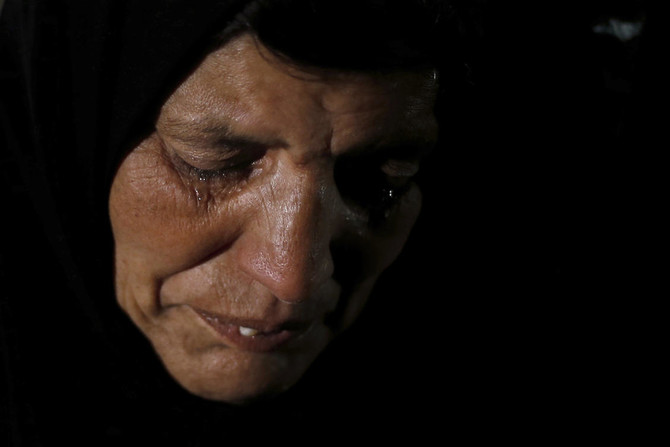
- Syria’s war has displaced half the pre-war population of 23 million people, of which 5.6 million have fled the country
- The UN refugee agency says it has verified only 37,000 refugees who have voluntarily returned this year
Egyptian FM repeats call for two-state solution
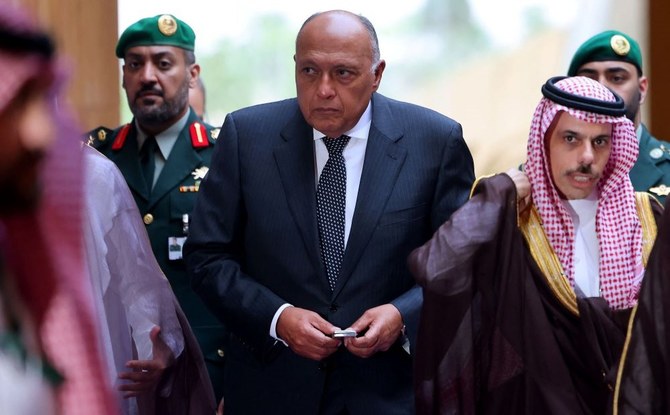
- Sameh Shoukry took part in a ministerial coordination meeting involving Arab and European countries
- Meeting, which discussed recognition of a Palestinian state, was held on the sidelines of the two-day WEF special meeting in Riyadh
CAIRO: Egypt’s foreign minister has repeated his call for a two-state solution to the Palestinian issue.
Sameh Shoukry on Monday took part in a ministerial coordination meeting involving Arab and European countries.
The meeting, which discussed recognition of a Palestinian state, was held on the sidelines of the two-day World Economic Forum special meeting in Riyadh.
Shoukry called on the international community to pressure Israel into ending its occupation of the Palestinian territories, and to support the legitimate and inalienable rights of Palestinians, said Ahmed Abu Zeid, the ministry’s spokesman.
Given the violence in Gaza and tensions in the West Bank, international parties must “assume their legal and human responsibilities to find a serious political horizon to establish a two-state solution and bring just and comprehensive peace to the region,” Shoukry added.
The foreign minister described the two-state solution as the “only path” toward peace between Palestinians and Israelis, as well as stability and coexistence among the peoples of the region.
IAEA chief Grossi to visit Iran May 6-8, Mehr says
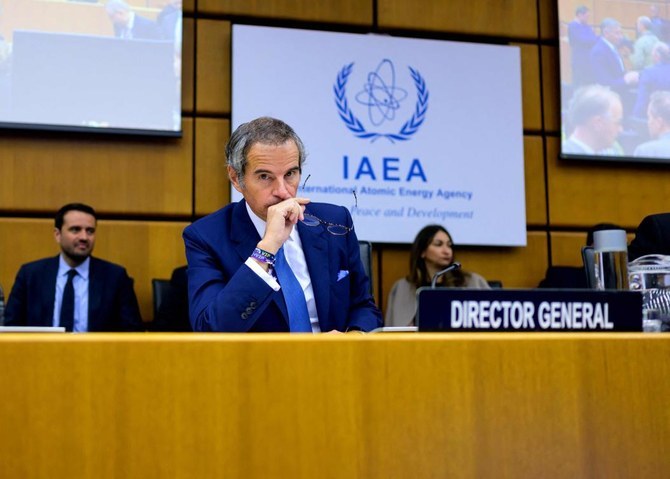
- Grossi will meet Iranian officials in Tehran before participating in the International Conference of Nuclear Sciences and Technologies held in Isfahan
- Enrichment to 60 percent brings uranium close to weapons grade
DUBAI: International Atomic Energy Agency chief Rafael Grossi is scheduled to visit Iran to take part in a nuclear conference from May 6-8 and meet Iranian officials, Iran’s Mehr news agency said on Tuesday.
“Grossi will meet Iranian officials in Tehran before participating in the International Conference of Nuclear Sciences and Technologies held in Isfahan,” the agency reported.
The IAEA chief said in February that he was planning a visit to Tehran to tackle a “drifting apart” in relations between the agency and the Islamic Republic.
Grossi said the same month that while the pace of uranium enrichment by Iran had slowed slightly since the end of last year, Iran was still enriching at an elevated rate of around 7 kg of uranium per month to 60 percent purity.
Enrichment to 60 percent brings uranium close to weapons grade, and is not necessary for commercial use in nuclear power production. Iran denies seeking nuclear weapons but no other state has enriched to that level without producing them.
Under a defunct 2015 agreement with world powers, Iran can enrich uranium only to 3.67 percent. After then-President Donald Trump pulled the United States out of that deal in 2018 and re-imposed sanctions, Iran moved well beyond the deal’s nuclear restrictions.
The IAEA said the 2015 nuclear deal was “all but disintegrated.”
‘We are with them’: Lebanon students rally for Gaza
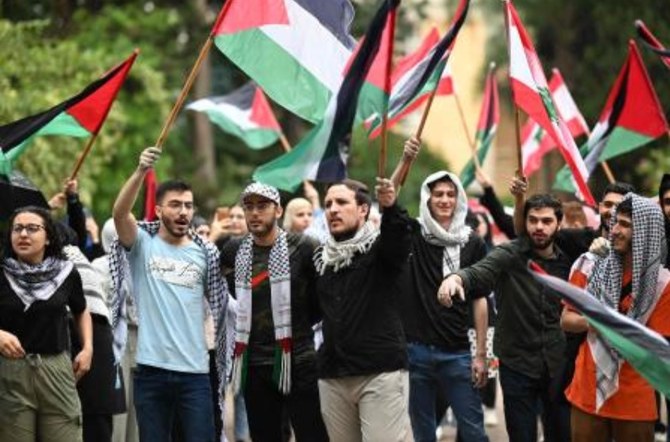
- “We are Palestine’s neighbors. If we do not stand with them today, who will?” asked AUB student Zeina
- Some students also carried banners declaring solidarity with south Lebanon, where Israel and Hamas-ally Hezbollah have exchanged near-daily cross-border fire since October
BEIRUT: Hundreds of university students in Lebanon protested on Tuesday against Israel’s bombardment of Gaza, inspired by recent pro-Palestinian demonstrations that have rocked US and European campuses, AFP correspondents said.
Dozens of students gathered at the prestigious American University of Beirut (AUB), some wearing the traditional Arab keffiyeh scarf that has long been a symbol of the Palestinian cause, an AFP photographer said.
“We are Palestine’s neighbors. If we do not stand with them today, who will?” asked AUB student Zeina, 23, declining to provide her surname.
“Around the world, students my age, from our generation, are the ones raising their voices,” she added.
The Gaza war began after Palestinian militant group Hamas’s unprecedented October 7 attacks on southern Israel, which resulted in the deaths of 1,170 people, mostly civilians, according to an AFP tally of Israeli official figures.
Hamas also took some 250 hostages. Israel estimates that 129 remain in Gaza, including 34 believed to be dead.
Israel’s retaliatory offensive, aimed at destroying Hamas, has killed at least 34,535 people in Gaza, mostly women and children, according to the health ministry in the Hamas-run territory.
The protests came as Hamas said it was considering a plan for a 40-day ceasefire and the release of scores of hostages in exchange for larger numbers of Palestinian prisoners.
Some students also carried banners declaring solidarity with south Lebanon, where Israel and Hamas-ally Hezbollah have exchanged near-daily cross-border fire since October.
The protests came as similar demonstrations swept universities across the United States, posing a challenge to administrators trying to balance free speech with complaints that the rallies have veered into anti-Semitism.
Footage of police in riot gear called in by universities to break up the rallies has circulated worldwide, recalling the protest movement that erupted during the Vietnam War.
“We renew our demand to stop the American-backed Israeli genocide against Palestinians and urgently demand to stop Zionist (Israeli) attacks” on south Lebanon, a female student told the crowd at AUB, praising “the global student movement supporting our people.”
At the nearby Lebanese American University, dozens of students gathered, raising Palestinian flags and burning an Israeli one.
“We want to convey a message to our people in Gaza: we are with them... We have not forgotten them,” Lara Qassem, 18, told AFP.
In Lebanon, at least 385 people have been killed in months of cross-border violence, mostly fighters but also including 73 civilians, according to an AFP tally.
Israel says 11 soldiers and nine civilians have been killed in the country’s north.
Arab-European ministerial statement: We endorse efforts toward achieving a Gaza ceasefire
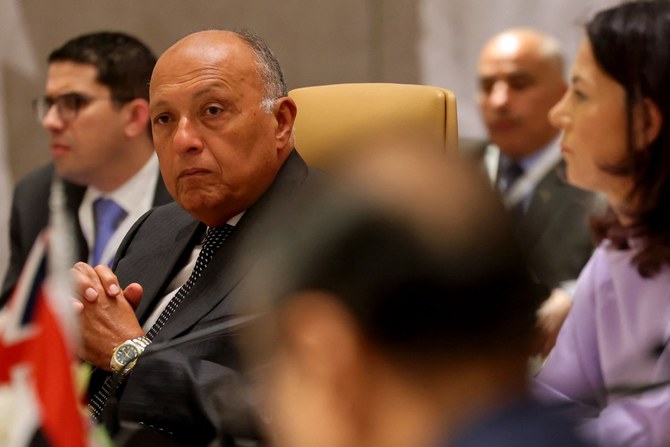
RIYADH: A joint statement from Arab and European foreign ministers highlighted critical priorities in addressing the ongoing conflict in Gaza, following a meeting in Saudi Arabia's capital, Riyadh, on Tuesday.
The statmenet called for the urgent need to halt all unilateral violations in Palestinian territories. It also called for the release of prisoners and hostages, putting an end to the war in Gaza and all illegal unilateral actions and violations in the occupied Palestinian territories, including East Jerusalem.
The meeting was chaired by Saudi Minister of Foreign Affairs Prince Faisal bin Farhan and Norwegian Foreign Minister Espen Barth Eide.
It was also attended by foreign ministers and representatives from Bahrain, Portugal, the European Union, Algeria, Jordan, Germany, the United Arab Emirates, Spain, Ireland, Italy, Belgium, Turkey, the Arab League, Slovenia, France, Palestine, Qatar, Egypt, and the United Kingdom.
Ministers reiterated their support for efforts aimed at achieving a ceasefire in Gaza. They emphasized the importance of establishing a unified Palestinian government in both the West Bank and Gaza.
Recognizing the significance of internal unity among Palestinians, the ministers have called for concerted efforts to overcome divisions and work towards a common goal of self-governance and statehood.
The statement also called for adopting a reliable and irreversible path towards implementing the two-state solution.
Arab and European foreign ministers were gathered in Riyadh on the sidelines of a two-day World Economic Forum special meeting.
Israel police say Turk shot dead after stabbing officer in Jerusalem
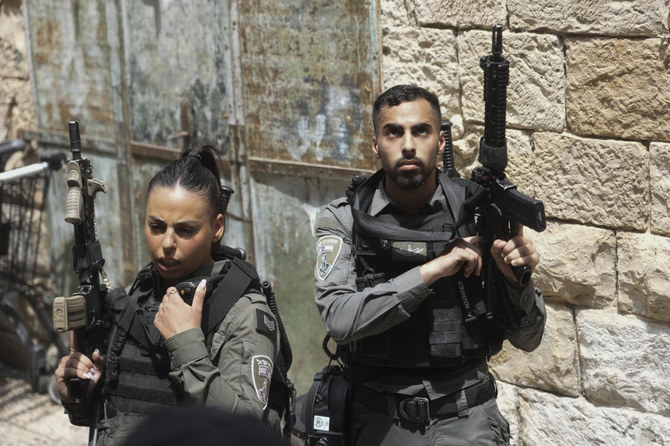
JERUSALEM: A Turkish national stabbed and moderately wounded an Israeli police officer in annexed east Jerusalem before being shot dead on Tuesday, police said.
Police said that a “terrorist armed with a knife arrived in the Old City of Jerusalem, on the Herod’s Gate Ascent street, charged at a border police officer and stabbed him with a knife.”
It said another officer at the scene “neutralized the terrorist” and the attacker was later pronounced dead.





